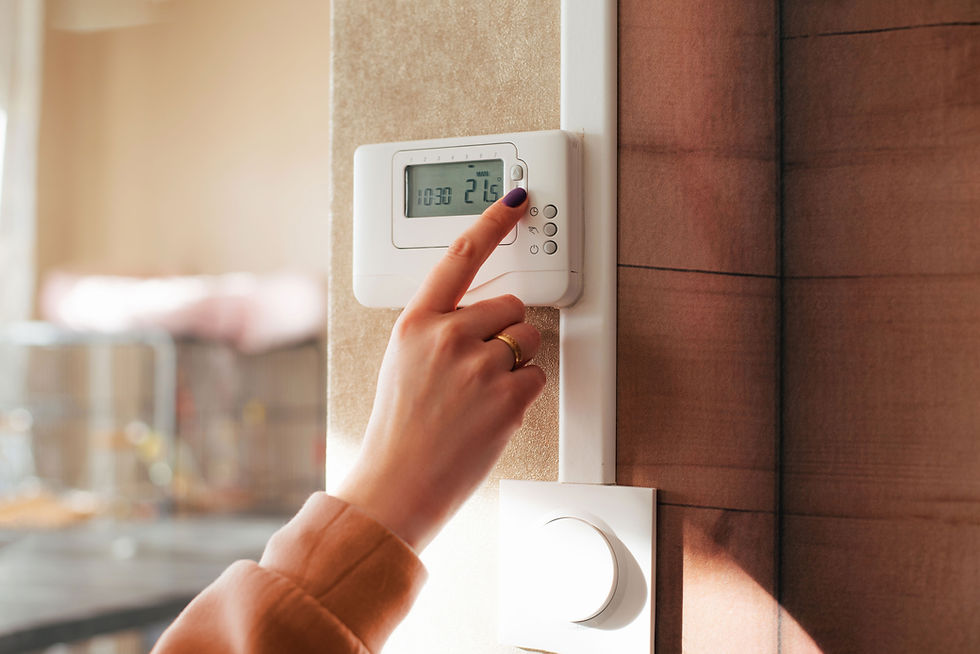Ideal thermostat temperature?
- jasonedboyle
- May 29
- 3 min read
Aire Wolf Heating and Cooling Systems
801-735-3293

Although the United States Department of Energy recommends that you keep your temperature at 78° in the summer when you are at home and 68° in the winter for optimal energy savings, those temperatures may not suit your comfort level. While temperature preferences vary widely, we've highlighted principles and strategies that can help you boost the cost effectiveness of your thermostat choice.

Heat is always moving from an area of high concentration to low concentration. If it's colder outside the heat from your home wants to move out. If it's hotter outside, the heat wants to move in to your cooled home. The rate this happens depends on how drastic the temperature difference is, how good your insulation is, the quality of your windows and how many, how your home is oriented to the sun, how the vegetation around your home shields your home from the sun, and how well-suited your heating and cooling systems are. These factors all contribute to how fast or slow the heat escapes from one area to another. We recommend the following three things to help dial in the comfort and efficiency you desire.
Get to know your home in its environment. The biggest help to a homeowner is to just start being aware of the things that affect the comfort of your home. Consider the following examples:
Outside temperature can sometimes be more pleasant than what the thermostat is maintaining. In Utah, we have the benefit of the temperature dropping at night except for a few weeks in the hottest months. In the summer, you can often simply open your windows and doors to invite the heat to step outside. The earlier you open your home, the more drastic the temperature difference; the faster the heat leaves. Cooling down the house naturally keeps the AC from turning on sooner, saving you $$. Simply close everything up before the AC system kicks on.
If you have windows facing the south, use window coverings to block the warmth of the sun in the summer and invite it in when it's cold.
If you have southern sun blasting your home, consider planting trees that shade the home from the sun's direct heat (even better if that tree looses it's leaves in the winter and allows the sun to warm your home).
In the winter time, consider leaving the oven door open after baking to effectively use that heat as the oven cools.
Evaluate your insulation. Good insulation is vital to consider when trying to conserve energy. When you are paying money to heat and cool your home, you want to keep the heat transfer down, and insulation will help in the winter and the summer.
A programmable, automatic thermostat will help maintain a consistent temperature, which is most efficient for your system. If there is no one home for many hours a day, it is most cost effective to let the temperature rise (in the summer) or fall (in the winter) when you home is unoccupied. In most cases, we recommend that the "away" temperature be set no more than 5° from your preferred comfort temperature in the summer, otherwise your system may struggle for hours to achieve the programed "home" temperature.
As a homeowner, you have many factors to consider to make your home comfortable and efficient. If you suspect your system isn't performing properly, give us a call and we can help you create the level of comfort you want!
Aire Wolf Heating and Cooling 801-735-3290.
If you have a place in your home, garage, or outbuilding that you only use occasionally, consider installing a heat pump or mini-split designed to heat or cool that space only when you need it.
Give us a call today! 801-735-3293


Comments